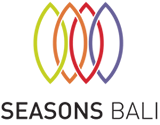Connecting With Family Members Suffering From Addiction
Contrary to what many believe, addiction is not merely an individual illness where only the one inflicted suffers. Addiction is a disease that affects the entire network of loved ones that surround the addict. It’s a disease of the family unit, and no one is exempt. Connecting with family members suffering from active addiction can prove incredibly tricky. Addiction is characterised by the addict’s denial of their condition and the isolation that usually comes with that condition.
The good news is that connection is possible when dealing with a family member who is genuinely suffering from a life-consuming addiction. Further, connection is actually crucial to someone suffering from an addiction. Feeling alienated from society is a grave consequence of being addicted to drugs or alcohol. Feeling alienated is also another reason those who are deprived of a connection to others often tend to continue to divest themselves of connection with others as well In an article by psychology today by licensed therapist Robert Weiss, he talks about the wisdom he’s encountered:
“In an increasingly widely disseminated TED Talk titled ‘Everything You Think You Know About Addiction is Wrong,’ British journalist Johann Hari discusses the available research into the underlying causes of addiction and concludes, rather brilliantly, that the opposite of addiction is not sobriety, it’s a connection.
His statement echoes a theme that many 21st Century addiction specialists and I have espoused for years. Addiction is not about the pleasurable effects of substances; it’s about the user’s inability to connect in healthy ways with other human beings. In other words, addiction is not a substance disorder, it’s a social disorder.” Read that again: “Addiction is not a substance disorder; it’s a social disorder.” However, sobriety has been proven to be the best way to approach addiction initially, and this mustn’t be left unsaid.
So, we understand now that connection is vital for addicts to attain and maintain, and studies have been done to prove it. But knowledge without fair suggestions for solutions is pretty much useless. So, how can someone connect with a family member who is struggling with addiction- someone who consequently is having trouble connecting with themselves and others due to the use of mind-altering substances and the preoccupation with attaining them?
Luckily, we’ve gathered some tips for you.
Be Physically Present For Communication
Technology is ever-evolving, but texts and calls can’t pick up on social cues that are involved in the healthy reception of communication. You may be tempted to withdraw to avoid being hurt or disappointed by the addict in your family, but attempting to maintain some in-person communication is essential.
Communication is vital to human connection and survival.
According to Dr Albert Mehrabian who authored Silent Messages, 7% of any message is conveyed through words, 38% through certain vocal elements, and 55% through nonverbal elements (facial expressions, gestures, posture, etc.). Subtracting the 7% for actual spoken content leaves one with the conclusion that 93% of communication is indeed non-verbal.
That being said, it is not wrong to text or calls to check-in with your loved one- it just shouldn’t be the only line of communication.

Find What You Still Have In Common
It can feel hard to relate to a family member who is struggling with addiction. All of their interests and hobbies probably seem to have been replaced with the highs of drug and alcohol abuse, and the urgent attempts to attain more of their drug of choice. However, reminding your family member of the best memories, hobbies, and pastimes you have in common may help the addict remember that behind their addiction, they are still a wonderful person with another identity.
Show Empathy
How to Stop Enabling an AddictIt is probably hard to have empathy and compassion when you, yourself, may be hurt by someone else’s addiction. However, one of the best things to understand about addiction of a loved one is that it is not personal. Their struggle is not because of you, and cannot be prevented by you. Empathy, though, can speak volumes and do wonders. Showing up as a compassionate supporter and doing your best to understand their pain and struggles won’t necessarily save the addict in your family. However, it will show your loved one that their family hasn’t abandoned them, is trying to understand their sickness, and is showing them acceptance despite their life position. Sometimes this alone can often ignite a spark of inspiration for someone to recover.

Go to Family Therapy
Getting the appropriate professional help needed can help an addict immensely, even if the result is not immediate. It will prove deeply helpful for an addict to know that their family is still around, still present for them, and still offering their help in a therapeutic setting.
Understand That Enabling is Not Connecting
You don’t have to be a slave to your family member’s addiction, too. Just because you are continually attempting to provide a presence and anchor in their life, it does not mean that you must be engrossed in their addiction. Enabling behaviour is not connecting, and is essentially a set of actions that begin with selfless intentions, but morph quickly into ones of a selfish nature. When one is afraid to lose someone they love, they may do everything they can think of to keep their loved one in their life and do anything to show them that they are still loved. Enabling behaviour, however, does not help the addict in the long run. Additionally, it does not satisfy the true definition of connection- it only mimics it.
Go To Therapy On Your Own
You cannot pour from an empty cup, or, in other words, you cannot help someone else if you haven’t sufficiently taken care of yourself and all of your emotional, physical, spiritual, and mental needs first. Setting boundaries with yourself can prove incredibly tricky when wanting to help an addict.
We often tend to want to over-extend ourselves to the addict or alcoholic in our family, trying to do anything and everything to save them. Most would agree that finding a support group, such as CODA or Al-Anon, can help the family members of addicts prevent heavy codependency on the addict and protect their health.
These support groups will also assist family members on the ways to talk to the addict or addicts in your family and when it is appropriate (and necessary) to set healthy boundaries.
There may prove to be limited to the amount that you can genuinely connect with your family members until they begin their addiction recovery process. Personal therapy and support groups can help you cope with this possible reality.
Connecting with a family member in the grips of an addiction, whether it be to drugs, alcohol, or even behaviour can be incredibly tough and frequently painful. It is essential that in the process of attempting to maintain a connection, you take care of yourself and learn the appropriate ways to approach and connect with the addict in your family in the healthiest way you possibly can. It takes an army to help an addict recover from their addiction, but it is possible
Transformation Starts Here
Taking that first step towards recovery is one of the most powerful things you can do. If you or a family member need help and you want to get the best treatment possible, get in touch with us now. With over twenty years of helping people to find peace in recovery, we are South East Asia’s Leading Addiction Treatment Centre.





